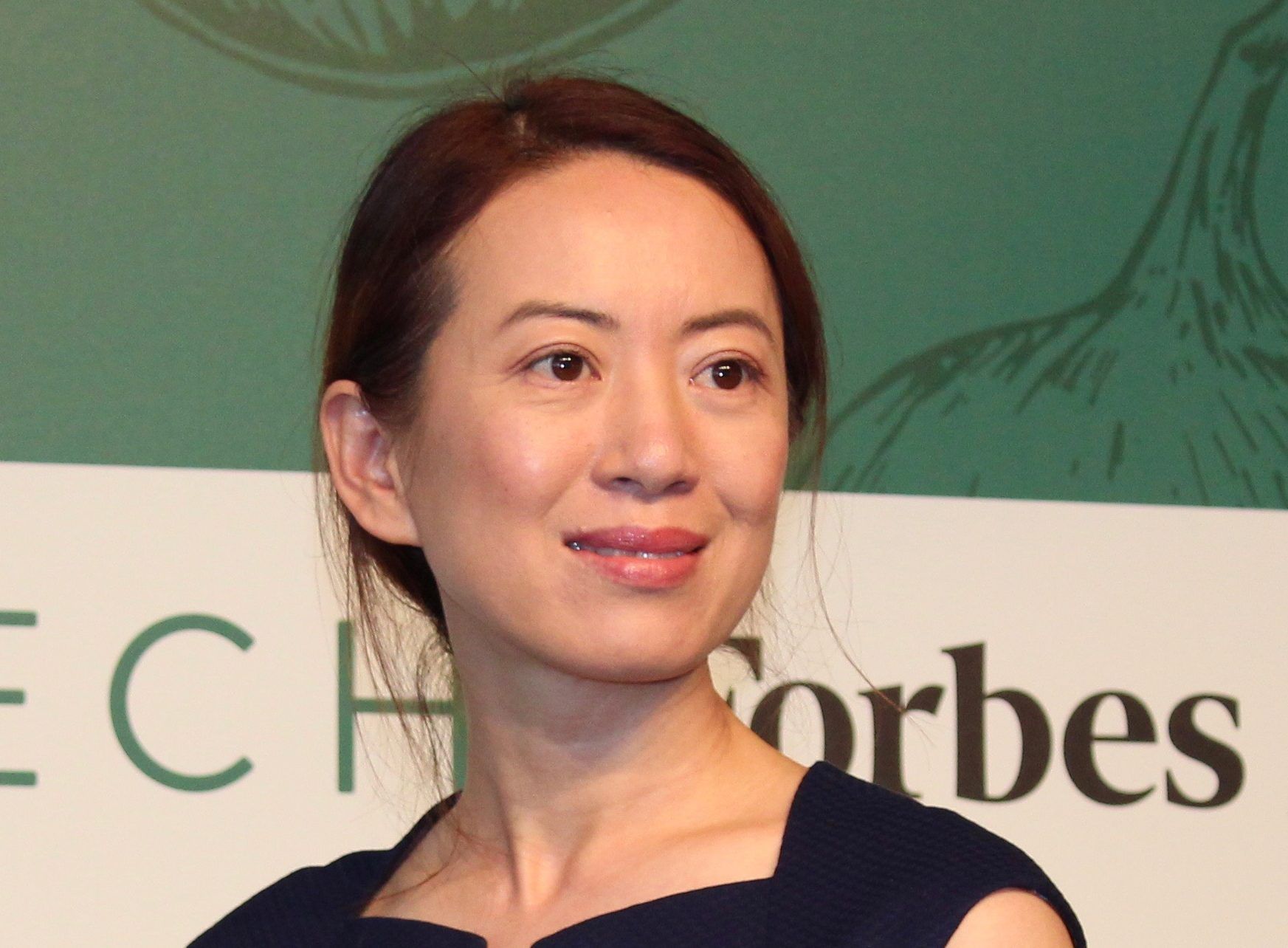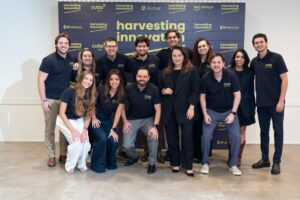Editor’s note: This is the first profile in a special series that spotlights women entrepreneurs in agtech globally and follows on from an earlier feature entitled Where Are All the Women in Agtech?
Xuemei Germaine founder and CEO of MicroGen Biotech
Xuemei Germaine is the founder and CEO of MicroGen Biotech an Irish-biotech startup that she launched in 2013. The company’s flagship technology Constructed Functional Microbiome produces microbial products for increasing crop yields and soil health with the goal of food safety. In 2015, the company raised seed funding from Irish and Chinese private investors and Enterprise Ireland.
This year the company has reached several milestones including being chosen to join the THRIVE AgTech accelerator program based at the Western Growers Center for Innovation & Technology in Salinas. Germaine was also a speaker on the panel “Growing diversity in agtech” at the 2017 Forbes AgTech Summit. At the Summit the company also received the sustainability award.
The company recently signed several strategic alliances with China, with Chinese soil remediation companies including China Energy Conservation and Environment Protection Group.
Outside of work she enjoys reading and playing the piano.
AgFunderNews caught up with Germaine to find out more about MicroGen Biotech and being a women in agriculture.
Q: Tell us about your background
I am a native Chinese, born and raised in China. I earned my PhD in Environmental Biotechnology at Institute of Technology Carlow, Ireland. I have two bachelor’s degrees, one in biochemistry in China and the other in industrial biology in Ireland.
Q: How many years of experience do you have in agtech?
Four years.
Q: Why did you choose to go into ag and ag tech?
My skill and own personal value led me to this sector. I always knew if I chose to be an entrepreneur, I’d need to discover an area where I have the skills and I can help to solve a real big problem that consumers face, and which is also impactful to people’s health. There are no other sectors that can be more impactful than the agriculture sector. We are now facing a big problem with our agricultural soil, namely pollution and poor soil health. I have the skills to fix the soil to create healthier soil, that can lead to healthier crop benefits and healthier people.
Q: Why did you launch your company and what are your responsibilities?
Entrepreneurship is in my blood. My parents and my two brothers all have their own business. I was growing up in this environment and always knew that I would start my own business. As CEO of MicroGen, I make sure our strategic development is on the right track. I make our product development pipeline have the right product-market fit and ensure it’s fit for a big market.
Q: What does your company do and what is its edge?
Microgen Biotech’s Functional Microbiome platform technology identifies microbes for food safety, crop yield and soil health that is 10 times cheaper and faster than conventional methods. By applying patent protected microbial products to polluted or stressed soil, Microgen Biotech protects the health of people and planet.
Many international media have reported pollutants in our agricultural soil led to the food safety crisis. The UK Independent recently reported that “three quarters of rice product sold as baby food found to contain illegal levels of arsenic.” It’s been widely reported that heavy metals are appearing in row crops such rice, wheat and potatoes, exceeding the legal levels.
We’ve been approached by many US and global growers, governmental agency and industrial leaders to help them to solve this problem and they have told us that they haven’t heard any companies in this area and it is the right time to address the problem.
Q: What are your short and medium term goals for the company?
The priority is focusing our market in China and increasing our sales by 500%. The focus can be broken down into increasing the food safety level of row crops, and improving soil health and food safety for high value plants, including organic produce, tea, and herbs for Chinese medicine. We also want to fulfil our product development pipelines and conduct field trials in the US.
Q: What are the next steps for the company?
Raising a further round of investment to capture this market opportunity, and strengthening R&D and the business team.
Q: Why is it an exciting time to be in this space/industry?
One of the members of my cohort in our THRIVE Accelerator program asked me a question after we won the “sustainability award” during the Forbes Agtech Summit. He said, “Xuemei, what is your most exciting time or you think the biggest moment you enjoyed since you started your company?” I was relaxed and really wanted to give him the answer that is real from my heart. I was thinking about moments including receiving our first investment, first sales, first partnership. And then I found my answer and I said to him, “it is the time now. Now is the time I am most confident of our “product-market fit” on a global level. Now we can solve a really big problem and give benefit to our customers.
It is a very exciting time to be in this space. Growers and governments globally are now keen on trials, and purchasing solutions for their soil health and pollution problem. And we are proud to be the first company to provide biological products and site-specific solutions to tackle the heavy metal problems in our agriculture soil to increase our soil health, crop yield and people’s health.
Q: What are some of the biggest challenges for agtech start ups?
I believe if we can integrate as much as possible our product/technology to current farming practices, and add real tangible value for growers, then we can sell! We work hard to talk to farmers and learn from farmers about their practice and develop our product for easy application. Whatever we developed, it needs to be extremely user-friendly so that farmers can apply it in their comfort zone, and increase their profits.
Q: Why are there so few women in agtech?
Agtech is very new and in general, there are fewer women than men in IT technology, biotech, engineering. And there are fewer women in the agriculture sector than in other sectors including medical and food sectors.
Q: Being a woman in a male-dominated industry, what are some of the challenges that you have faced and how did you tackle them?
Personally, I have not met challenges as a result of being a woman. One reason for this is that I am I very lucky that I am based in Ireland. Our government and the society really respects female entrepreneurs and supports us in many ways. The other reason is myself. I believe as a woman I can achieve as much as a man can do if I put my best effort in it. I love challenges, I love to turn disadvantages into advantages and gain success. I am confident around men, maybe because I was fortunate growing up with my two older brothers.
Q: What do you think would change that?
I’ve talk to many woman entrepreneurs and they personally met many challenges around this issue, and they tackle them by showing their strength and their confidence. I believe creating role models is very important for young women and building the confidence within our ourselves is the key to change.





